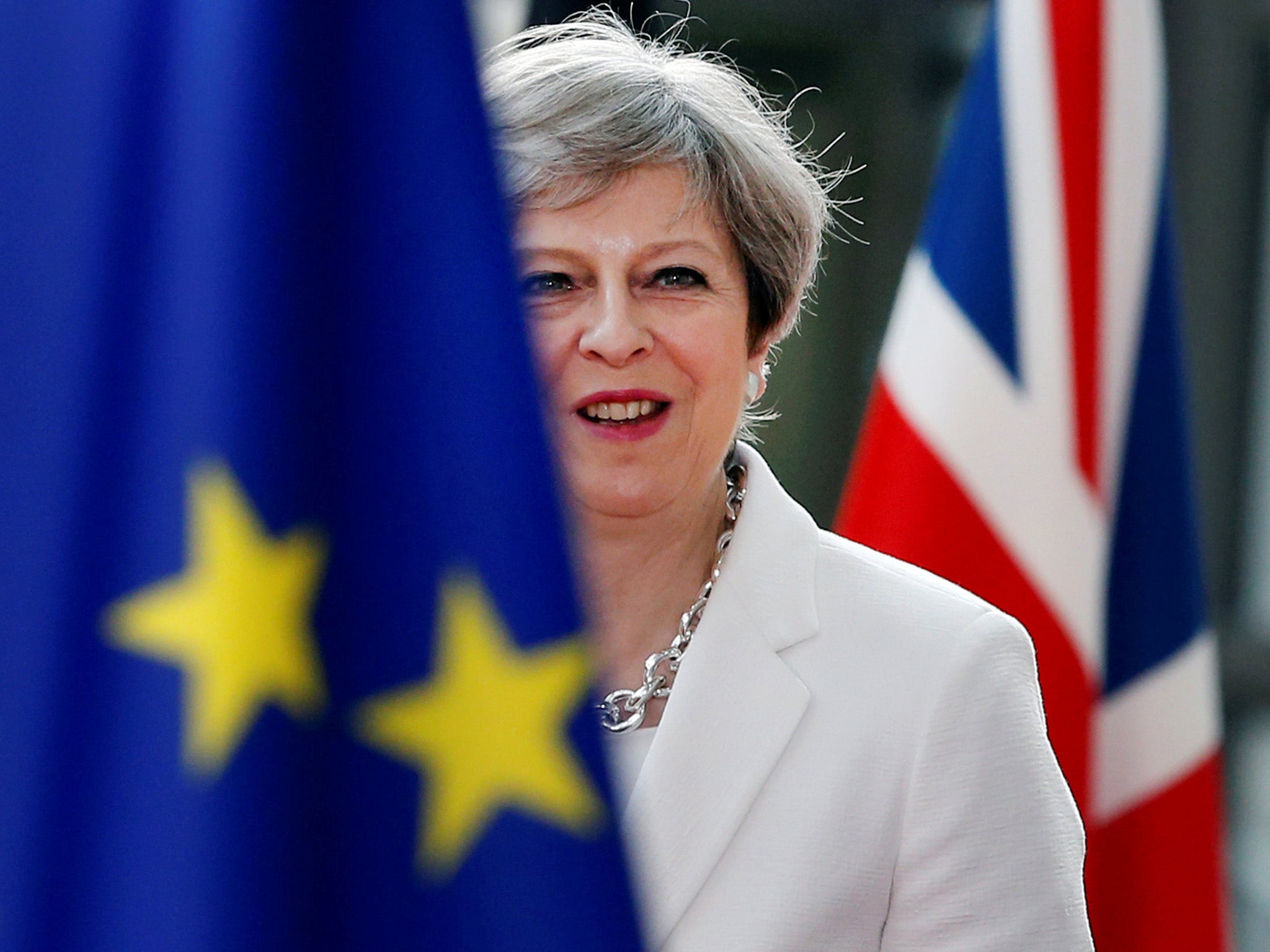These are the key questions we need to ask about Theresa May's 'generous offer' to EU citizens
Given that some of the issues are technically complex and politically charged – as well as likely to be an administrative nightmare – we will only know whether the UK's offer is actually a good one when we see the detail


When Theresa May makes you a "big generous offer", you probably want to check the small print. That certainly applies to EU citizens resident in the UK – after all, she claimed repeatedly that the only thing stopping the UK from guaranteeing their rights was the failure of the EU27 to promise to do the same for Brits living elsewhere in the EU. But when, in April, the EU called her bluff and published its own offer – which does precisely that – it was met with a deafening silence from the UK side.
That silence was finally broken in Brussels on Thursday when the PM said the UK would offer a “settled status” for EU citizens living in the UK for five years, aiming to give access equivalent to UK citizens for health care, pensions, education and benefits. That sounds, on the face of it, as if it goes most, if not all, the way to matching the EU position.
However, the actual text of the UK proposal will only be published on Monday. And given that some of the issues are technically complex and politically charged – as well as likely to be an administrative nightmare – we will only know whether the UK's offer is actually a generous one when we see the detail. Even today’s headlines talking about giving EU citizens “the same rights” as UK citizens need close examination: in fact the Prime Minister said only that the UK is “aiming to treat” EU citizens equally with UK citizens.

Here are the key questions to ask, in order of increasing difficulty as far as the negotiations are concerned.
What will be the cut-off date for resident EU citizens to qualify for this new settled status?
The EU27 have proposed Brexit Day; while the UK may have originally wanted the date of notification of Article 50 (29 March 2017), this now seems implausible, for practical reasons and for legal reasons (using the Article 50 date might breach EU law by deterring EU citizens from exercising their free movement rights before Brexit Day when the UK is still a Member State). May’s proposal leaves the cut-off date open, but it seems likely the UK will concede on this. Perhaps more importantly, how does the UK proposal treat the many hundreds of thousands of people whose case will be more complex, because they are out of the country on the cut-off date or have interrupted periods of residence?
What about those EU nationals who have not satisfied the five year period?
Will the UK talks about a planned “grace period” after Brexit work for those EU citizens who don’t already qualify for the proposed “settled” status? What criteria will they have to meet? Does the UK have the administrative capacity to process all their applications?
Will the UK try to enforce the rules in the same complex way it does at present with applications for recognition of permanent residence?
This applies in particular to its application of the requirement for "comprehensive sickness insurance" currently applied to some EU nationals who have not been continuously employed. Or will the UK promise to rip up the current system and start again with a simple, streamlined system, using the data the government already has on EU nationals (tax and NI payments, for example) and where the burden of proof is on the Home Office to show the applicant is ineligible, rather than the reverse.
Will the UK guarantee the (indefinite or at least prolonged) continuation of all rights?
This was promised by Boris Johnson, Daniel Hannan and the like, and applies not just residence, but to benefits, public services, and, perhaps most difficult, "family rights". In other words, will it preserve indefinitely the current position where EU citizens living here have, in some respects, more rights than us Brits, in particular to marry and live in the UK with their spouse without passing the income test that Theresa May introduced when she was Home Secretary?
Similar issues arise for Brits abroad. Again, they get “extra rights” in some respects compared to locals. This is particularly relevant in countries with contributory welfare systems. For example, Spain requires Spanish pensioners accessing the health system to have either a contribution record, an income-tested minimum pension, or private health insurance. What would happen to Brits – who might not qualify under any of these headings – if May’s proposals were accepted? Would Brits now be subject to the less generous rules on admission of family members, or acquisition of long-term residence, that apply to non-EU citizens? And for both groups, will the EU rules on cross-border social security contributions and recognition of qualifications gained in other countries continue to apply and for how long?
What role will the Court of Justice of the European Union play?
The Prime Minister didn't say anything about this on Thursday night, but if anything is likely to be a deal breaker this is it. Both sides agree that whatever the deal is, it should be incorporated into UK law, just as EU Directives on free movement are now. But at the moment, the ultimate say on how that law is interpreted is the CJEU. The EU wants this to continue after Brexit and for the lifetime of EU nationals covered by these provisions – as they see it, what we’re talking about here is the continuation, post Brexit, of rights established under EU law, and only the CJEU can ultimately decide on what EU law means. For the UK, “Brexit means Brexit” means an end to the jurisdiction of “European judges”. Can these two positions be reconciled, perhaps by means of some new court or dispute settlement process? Maybe – but it won’t be easy and both sides will need to back down.
Stepping back, then, will May’s offer, generous or otherwise, get the negotiations off to a good start? Ironically, if the UK had made this offer 9 months ago, when this issue first came to the fore, and before stories began to emerge of the absurd and offensive treatment of some EU nationals applying for permanent residence, it would probably have been seen as very positive and constructive.
Made now, after the EU27 have already set out in some detail a considerably more expansive approach, it probably just about passes the adequacy test, but no more. That is, it won’t be regarded as insulting by other EU governments or the Commission, and will be accepted as the UK’s opening position, but it’s certainly not enough to secure a quick deal. This should have been the easy part of the Brexit negotiation – let’s hope our side does a better job with the rest.
Professor Jonathan Portes, Professor Catherine Barnard and Professor Steve Peers from The UK in a Changing Europe
Join our commenting forum
Join thought-provoking conversations, follow other Independent readers and see their replies
Comments
Bookmark popover
Removed from bookmarks